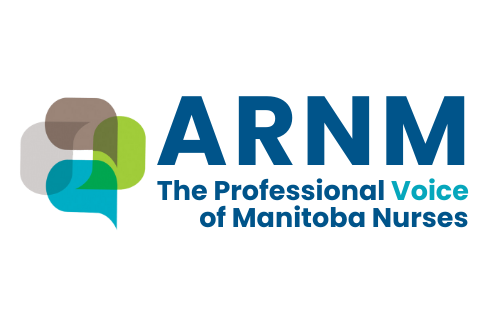March's Nurse of the Month: Danielle Yaffe (she/her), RN MN CCNE CCNSNE, Instructor II, University of Manitoba, College of Nursing
“I had heard it's like an art and science and it just clicked for me. I had absolutely no idea what it would be like and how magical it would end up being. It was the perfect fit for me.”
From a young age, Danielle Yaffe's heart was set on one thing: helping others. She knew deep down that nursing was her calling, and now she's making a difference in the lives of so many.
“It's interesting because I have a lot of doctors in my family but no nurses. I heard wonderful things about nurses from my family because they worked with them, but I knew very little about the day-to-day work,” Danielle explains. “I knew that it was a helping profession and that you're going to have an impact on other human beings, and you have to be compassionate. That's kind of all I knew about it.”
From her senior practicum until completing her Master’s, Danielle Yaffe spent her career at Health Sciences Centre, including acute surgery, surgical intensive care unit, gynecology surgery, and oncology.
She then shifted into clinical teaching working in skills, lab, clinical, and simulation and now as an Instructor II, at the University of Manitoba, College of Nursing, Danielle teaches in the classroom and in the skills lab.
“I also had always wanted to be a teacher. I always knew from a young age that I liked teaching too and I realized in nursing, how much you teach. You teach your patients all the time. You're empowering your patients with knowledge and understanding as you care for them,” she explains. “You're mentoring other nurses all the time, so you're growing, but you're also helping everyone around you grow in that regardless of where you are in that process.”
Nursing isn't just a job for Danielle. From the relationships she builds to the thrill of problem-solving on the fly, she's truly found her calling in this rewarding profession.
“I think for me it's always come down to the fact that there's so many aspects to nursing. You need to be smart, use your brain, be thinking all the time. But the trick with nursing is you have to know how to use that knowledge in the right moment and it’s really an art and a science,” shares Danielle. “You have to know how to be with people and how to communicate and you have to know when to be softer and then when to advocate for things. You need to figure out what the needs of your patients are, and you also have to learn how to collaborate and work with other people. So, it requires a lot of skills and talents, and you grow a lot.”
From helping patients in need to making a real impact on their lives, there's nothing quite like the feeling of making a difference every day. Getting that opportunity every single day is truly rewarding.
“I think we don't realize the impact we have on people because we’re taking care of them, we help them heal. They remember those moments and we might not. But it's kind of an amazing thing that you can touch the lives of hundreds and thousands, of people in your career and you might not have a clue that you're doing it at the time, but we do. We do make a difference.”
“I have the same experience with students. I've seen students in the hospital and they're making differences. I've had people tell me how great the students are. It's just wonderful to hear that people are making an impact as nurses,” Danielle adds.
Danielle is also a co-chair on the ARNM Professional Development Committee, that creates professional development opportunities that target needs identified by ARNM members.
“I feel like ARNM provides a great opportunity that is very feasible and convenient to be able to just go online, check out education, learn a little bit about things, maybe learn about other areas again. It's another way that we can be better in our role and also become a community and support each other,” she says. “A lot of our Talk Tuesdays are a great way for people to feel validated and to feel sort of like they're heard, and that other people are experiencing the same thing they're experiencing.”
“We as nurses, can identify problems but we also have to identify ways of how we can address changing those and that comes from learning what’s going on, talking to other people, and engaging and that's important. If we isolate ourselves and don't build a community, we can't make change.”
